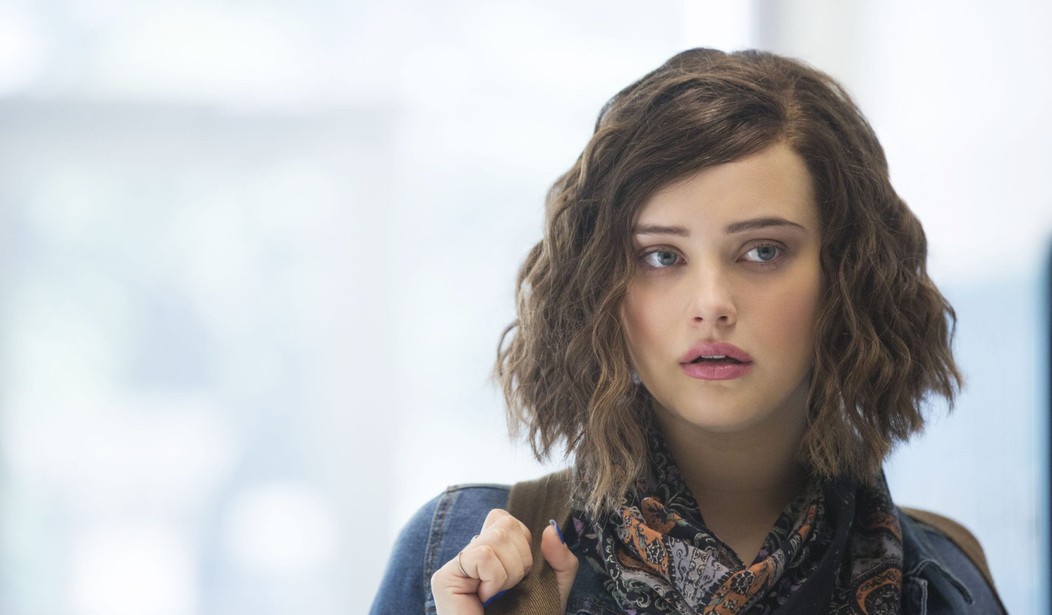I avoided “13 Reasons Why” purposefully for all the usual reasons. I was sure Netflix’s new teen suicide drama would be a grotesque glamorization of teen suicide and angst and that it would be used as an excuse to bombard America’s youth with obscenity. So one night, out of boredom and curiosity, I started watching it and discovered I was wrong. I ended up binge watching all 13 episodes over three days. (Spoiler alert! If you haven’t seen it and plan on watching it, you might want to wait to read this until after.) “13 Reasons Why” has faced a lot of criticism and I expected to agree with most of it. Here are five reasons I don’t.
https://youtu.be/JebwYGn5Z3E
1.The sexual content was super cringey
Normally, teen dramas have lots of gratuitous sex that is never shown to have any consequences. It is presented as a fact of life for all teens and is never dealt with in a serious way. In “13 Reasons Why,” the two main characters, Hannah and Clay, are virgins and are perfectly fine with that. Neither is in a rush and both are just looking for connection and love. Hannah shares an innocent kiss at school with a boy who turns the story into a sexcapade and brands her a whore. This begins her tale of bullying that leads her to suicide. There is sexual content in the show, but almost all of it makes you very uncomfortable because it’s either rape or some form of assault. None of it seems intended for arousal, but the opposite—repulsion. This is important for teens because most of the garbage they watch paints teen sex as great romantic fun with lots of positive experiences attached. That’s a fantasy. Reality tells a different story where teen sex leads to heartbreak, disease, bullying, harassment and even suicide. (Sidenote: The rapist is, of course, a white male football star. This was the one thing about the series that I found stupid, predictable and way too politically correct. Haven’t we had enough with this stereotype? Rich, white, spoiled jock rapes all the girls! Who could have seen that coming? Doesn’t Hollywood have any original ideas? Also, the nudity wasn’t necessary to show. The rape of Jessica is very graphic and I would skip past it if I were in control of the remote because you can get the idea without seeing it. It is worrisome in that you don’t want your kid becoming aroused by a crime. While the scenes were revolting to me, I’m not a teen boy and I have no idea how they would view it. I’m not sure how to handle that except to skip that part. Always preview these types of things first.)
2. Even small kindnesses could save a life
There was a repeated message in the series: At any time, any one of Hannah’s friends could have made a decision to be kinder, but didn’t. It was a wake-up call. If that doesn’t move you, you have a heart of stone. I spent the entire series wishing someone would have just seen her, made an effort, paid her a small kindness because, for someone in pain, that could be everything. This is a crucial message for teens, who are emotionally immature and rarely can see past themselves. Teaching your teen to look for ways to just be kinder is a simple thing to do that could save someone’s life.
3. Suicide is not glamorous
Everyone is very worried that this show will encourage some mentally unstable teens to try to get revenge on their bullies by copying Hannah’s tactic of recording the reasons for her suicide and naming the culprits. But this story is very stylized to the point that it seems more of a parable than real life. Instead of showing “do it this way in order to exact revenge,” it is a message for those who are not suffering from bullying, depression, or despair. It is a parable for the rest of us to sit up, pay attention, and see the ones who are hurting and the ones who need our help. Hannah’s parents are so devastated by her loss that it’s hard to imagine any teen who is thinking about suicide watching this and still thinking it’s a good idea afterwards. Everyone around Hannah is destroyed by her death—especially the people she loved. Watching them just try to make it through a day after she is gone is hell. It is achingly raw and at no time did I feel like Hannah made the right choice. That isn’t to say that some poor suicidal person won’t see this and think it’s a game plan, but it seems as if the creators of this series worked very hard to make it a glaring warning and not a “how to.”
4. Gay characters are finally normal
One of my biggest pet peeves about modern TV is the way gay characters are portrayed. For one, they are a much higher percentage of the population on television than in real life. In every show there are now three to four gay characters in a cast of seven. This defies reality. TV is just really, really gay these days. So I knew there would be gay characters in this show, too, and I was right, but for once they were written well. Usually whenever there are gay characters in a teen show they are stereotypes and spectacles. There are only three types of gays shown on television: the magical kind who are very fashionable and solve all problems in a cloud of pink glitter; the flamboyant, over-the-top lisping comic relief character; or the lecturing gay who gets offended at everything and wants to make sure all the straight people around him/her know the proper terms for things and the most recent gay grievances. The gay characters in this show are just kids like everybody else. They are believable and the issue of sexuality isn’t pushed like a public service announcement with political agendas underlying everything. Finally, someone has written gay characters that don’t annoy everyone.
5. At last, a teen drama you can watch with your teen (and should)
My praise for this series shouldn’t be interpreted as a go-ahead for your teens. This is a heavy drama filled with very dark material. Sex, drugs, rape, murder, alcohol abuse, and suicide are the main topics. There are lots of “f” words throughout (too many, in my opinion). If teenagers talk this way, that makes me sad. Hopefully mine won’t. But the bigger issues that come up are very important for today’s teens to discuss openly with adults who love them. If your teens won’t watch it with you, then I wouldn’t recommend them watching it alone. Any teen, especially in a public school situation, could be struggling with these very real and scary issues. “13 Reasons Why” deals with all of them in graphic but non-gratuitous ways. But that doesn’t mean they should watch it unsupervised. There are things in it that can give a very wrong message.
One part of the story that bothered me was the idea that Hannah’s suicide was everyone else’s fault except hers. And while it’s true that human beings have a responsibility to one another to not be horrible and to care for one another, in the end, the only person who is making life and death decisions for you, is you. Mental health expert and psychotherapist Brooke Fox agrees:
Nobody else is responsible for our mental health. … I understand that the author was attempting to illustrate the point that our actions have an impact on people and at times, that impact can be severe. Small sins add up, and create a cumulative effect that can sometimes have dire consequences. I agree with these assertions. However, as a mental health provider, I work with people to find their power, and their voice. And yes, I work with teens to do this as well. We need to own and name our feelings as well as our actions. I believe we should teach our children to dig deep and find resilience, not point fingers at others – as Hannah did – and hold them responsible for our feelings and actions.
Overall, “13 Reasons Why” creates opportunities to talk with mature teens about very important issues facing them in this modern world. If you don’t like it, blame the culture, not the show.










Join the conversation as a VIP Member